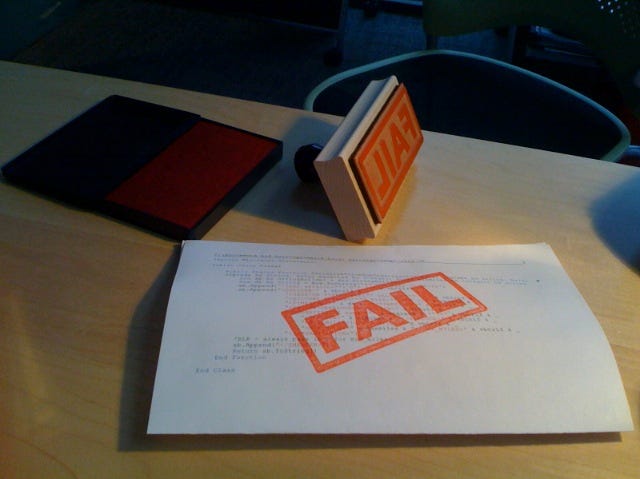When we set out to invest in creative experiences in journalism sustainability and community engagement we promised we’d share everything we are learning. We wanted to be sure to document what worked but also, just as importantly, what didn’t work.
This is one of those things that didn’t work.
Our ecosystem approach in New Jersey is rooted in the idea that new journalism networks need new kinds of support. When most reporting was happening inside big newsrooms, those institutions provided legal protection, web development, administration and sales capacity. But today we need to rethink how we give community journalists access to those important tools and resources. (In an earlier post, I described how we are approaching new kinds of legal support for this post-industrial journalism age.)
Testing A Shared Web Maintenance Team
We had heard from local news sites that they wanted more access to web development and tech support, so we found a local firm who knew the journalism landscape and was eager to help. This firm, 99 Robots, wanted to test a new $99 per month payment plan that would give clients unlimited access to basic tech support for their sites (we subsidized our local partner sites by paying 75% of the monthly cost).
It was a win-win — or so it seemed — but here is what we learned:

Photo by Hans Gerwitz, used via creative commons
1) Challenge One: Giving The User What They Want
We realized pretty quickly that this was an idea that looked good on paper, but in practice it didn’t meet the real-life needs of our local news sites. When we discussed the idea of a shared web support team most of the local journalists responded positively, but once the partnership went live few newsrooms actually signed up.
The $99 a month plan was focused on basic web maintenance — updating plug-ins, doing backups, etc. — tasks local publishers didn’t love spending time on but mostly knew how to do themselves. We thought that our sites were looking for basic support on web administration and maintenance, but through this process we learned what they really wanted was access to graphic designers, data journalists and news app developers. Local sites wanted to work with developers who could help them take their sites to the next level, not simply keep them running where they were.
If we had surveyed the sites a bit more extensively, or done some observation of their workflow we might have recognized this earlier. But it may have been that we needed this experiment to learn this lesson.
2) Challenge Two: Time
Whether it be business development, web maintanance or reporting experiments local journalists are constantly trying to free up small blocks of time to do the hard work of running their business, caring for their site or simply trying something new. We thought that a service like this could free up their time to focus on other projects, but sometimes working with a consultant can eat up even more of your time (especially during the early on boarding stage). Many of our sites were more likley to just jump in and do it them selves than delegate out to a third party, and manage that process.
3) Challenge Three: Control
Having someone take over basic maintenance of your sites requires handing over the keys to your business — your livelihood — to another person. This is no small thing and some of our sites had a hard time giving up control to 99 Robots, worrying that someone unfamiliar with their site might break something. And those fears were somewhat founded — we had one incident where changes in one part of the site ended up erasing a bunch of content in the site archives. 99 Robots was able to fix it, but it cause a few days of panic. Time and control go hand in hand and together they can create profound barriers to testing new ideas.
4) Challenge Four: Cost
99 Robots underestimated what it would take to serve local news sites and other small businesses and it quickly became clear that their $99 a month plan wasn’t sustainable for them. While they agreed to grandfather our partner sites in, if we had wanted to try to scale up this experiment to the entire state 99 Robots wouldn’t have been able to make it work. If you go to the 99 Robots website today, you won’t find a $99 a month plan anymore.

Image by Sean MacEntee, used via creative commons
Fail Often to Succeed Sooner
Throughout this experiment, the team at 99 Robots were great to work with. They were willing to join us in this experiment and when it became clear that it wasn’t working we were able to debrief the experience and each go our own way. In the end, we stuck with it for three months.
A few things did work: One service 99 Robots offered that many publishers liked was an emergency hotline if your site goes down. Working with 99 Robots was also a reminder of best practices in terms of site backups, web maintenance, and data hygine for local news sites. Even this short experiment served as a bit of spring cleaning for the sites that participated.
We haven’t given up on the idea of creating a shared service around technology, web design, data journalism or news app development. We think there are real opportunities for someone to work at a statewide association or college campus and serve a network of local sites. And we think there are partnership opportunities between big and small newsrooms that can help fill these gaps.
So if you are a web developer with a hankering for news or a journalism hacker looking for a new challenge, get in touch. We are looking forward to building on this experience to further the discussion about how we bring cutting edge tools and skills to local newsrooms in New Jersey and beyond.

Molly de Aguiar is the Program Director for Media and Communications and Josh Stearns is the Director of Journalism Sustainability at the Geraldine R. Dodge Foundation.
This post originally appeared on the Local News Lab. The Dodge Foundation’s Media grants seek to strengthen and grow the New Jersey news ecosystem and support local journalism as a critical space for innovation, creativity and community building. For more information on this work, visit the Local News Lab and the Dodge Foundation’s website.